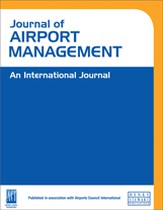Winter blues at European airports: The need for airport responsibility and corporate foresight
Abstract
The chaos at European airports, particularly London Heathrow, in the winter of 2010, wrought by pummelling snowstorms and ice, not only caused cancelled flights and stranded passengers but also resulted in a tremendous cost for the airport authorities. Airports operator BAA has released the figure of £24m (c. US$38m) as the cost incurred by the Spanish-owned firm which operates six airports in Britain. This cost includes a reduction in profit as a result of the decrease in passenger numbers by 11 per cent over a few days. As this paper discusses, the handling of the crisis by BAA drew widespread criticism from both legislators and airlines, the former considering the adoption of legislation against airports and the latter threatening to withhold charges due to the airports. It also asks whether airports should be held responsible for service failure brought about by a natural phenomenon and whether airports should have had what in modern business parlance is called ‘corporate foresight’ to deal with the natural phenomenon. This leads to a discussion on the kind of foresight an airport should have to deal with such situations as well as the obligations of a state to provide functional airport services in its territory. In conclusion, the paper posits that, as regards corporate foresight, an airport has to start with a culture of corporate foresight and adopt a dynamic and comprehensive emergency management process. More importantly, it recommends that airports work jointly and in partnership with airlines and air navigation service providers in developing their corporate foresight.
The full article is available to subscribers to the journal.
Author's Biography
Ruwantissa Abeyratne has worked in the field of aviation law and management for 28 years. He is currently Senior Legal Officer at the International Civil Aviation Organization (ICAO). He also teaches aero politics, law and policy at the John Molson School of Business, Concordia University, in the global aviation MBA programme. He holds the degrees of doctor of civil laws from McGill University, doctor of philosophy and bachelor of laws from the University of Colombo, and master of laws from Monash University. He has written numerous books and journal articles on international law and air law, in addition to many papers presented to conferences. His books include Aviation in Crisis, Air Law and Policy, Aviation and Diplomacy, Aeropolitics, Aviation and the Environment, Aviation Security Law and Airport Business Law. Dr Abeyratne is a Fellow of both the Royal Aeronautical Society and the Chartered Institute of Logistics and Transport. He is also a member of the International Law Association, in which he serves as a member of both the association’s International Trade Law Committee and Space Law Committee. He is a founder member of the Montreal Branch of the Royal Aeronautical Society. Dr Abeyratne has written this paper in his personal capacity, therefore, the views expressed herein and facts should not necessarily be attributed to ICAO.
